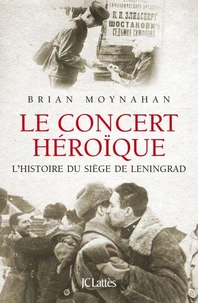Grigory Efimovich Rasputin came to St. Petersburg from his Siberian cabin in 1903 like a projectile from the medieval past, tattered, black-clad, muttering. By the time he was murdered thirteen years later, the peasant was the "beloved" Friend of Tsar Nicholas and Empress Alexandra and the sponsor of the most powerful officials in Russia. He had become, a society lady wrote, "a dusk enveloping all our world, eclipsing the sun.
How could so pitiful a wretch throw so vast a shadow? It was inexplicable, maddening, almost incredible. "Rasputin's name has become synonymous with evil, but his legend has obscured the facts of his life. In this evocative biography, Brian Moynahan presents us with a flesh-and-blood Rasputin, more fascinating than the myth--a man in whom debauchery coexisted beside a real (if erratic) spiritual sense, a man whose coarseness hid a savvy awareness of human psychology.
Drawing on confidential police reports, cabinet meeting memos, and other documents, some available only since the fall of the Soviet Union, Moynahan sheds new light on Rasputin's life and disputes some of the widely held details of his death. The young Rasputin was a drinker, thief, and womanizer. He claimed to have religious visions and became a wandering holy man, preaching that exposure to sin could drive out sin.
He stormed the fashionable salons of St. Petersburg, and in 1905 he met Nicholas and Alexandra, who, increasingly despised by the sophisticated, found in Rasputin reassurance that the "real Russia, the simple and pious peasantry, loved them. Rasputin's mysterious ability to stop the bleeding attacks of their hemophiliac only son, Alexis, sealed the approval of the domineering Alexandra. With royal patronage, Rasputin became increasingly reckless, partying with prostitutes, peddling influence, plotting the disgrace of those who crossed him.
Ever contradictory, he was also a devoted family man, a defender of the poor, and a figure of immense charisma. As Germany battered Russia during World War I, as Nicholas's ineptitude as a leader became ever more rampant and the masses went hungry, Rasputin seemed to monarchists to be the cause, and not just the symptom, of corrupt government. A group of conspirators gathered--among them a grand duke and a scion of the richest family in Russia--and one of the most famous murders in history was planned. Set against the vivid backdrop of prerevolutionary Russia, Rasputin is a portrait of an age as well as of a man.
NOTE: This edition does not include photographs.
Grigory Efimovich Rasputin came to St. Petersburg from his Siberian cabin in 1903 like a projectile from the medieval past, tattered, black-clad, muttering. By the time he was murdered thirteen years later, the peasant was the "beloved" Friend of Tsar Nicholas and Empress Alexandra and the sponsor of the most powerful officials in Russia. He had become, a society lady wrote, "a dusk enveloping all our world, eclipsing the sun.
How could so pitiful a wretch throw so vast a shadow? It was inexplicable, maddening, almost incredible. "Rasputin's name has become synonymous with evil, but his legend has obscured the facts of his life. In this evocative biography, Brian Moynahan presents us with a flesh-and-blood Rasputin, more fascinating than the myth--a man in whom debauchery coexisted beside a real (if erratic) spiritual sense, a man whose coarseness hid a savvy awareness of human psychology.
Drawing on confidential police reports, cabinet meeting memos, and other documents, some available only since the fall of the Soviet Union, Moynahan sheds new light on Rasputin's life and disputes some of the widely held details of his death. The young Rasputin was a drinker, thief, and womanizer. He claimed to have religious visions and became a wandering holy man, preaching that exposure to sin could drive out sin.
He stormed the fashionable salons of St. Petersburg, and in 1905 he met Nicholas and Alexandra, who, increasingly despised by the sophisticated, found in Rasputin reassurance that the "real Russia, the simple and pious peasantry, loved them. Rasputin's mysterious ability to stop the bleeding attacks of their hemophiliac only son, Alexis, sealed the approval of the domineering Alexandra. With royal patronage, Rasputin became increasingly reckless, partying with prostitutes, peddling influence, plotting the disgrace of those who crossed him.
Ever contradictory, he was also a devoted family man, a defender of the poor, and a figure of immense charisma. As Germany battered Russia during World War I, as Nicholas's ineptitude as a leader became ever more rampant and the masses went hungry, Rasputin seemed to monarchists to be the cause, and not just the symptom, of corrupt government. A group of conspirators gathered--among them a grand duke and a scion of the richest family in Russia--and one of the most famous murders in history was planned. Set against the vivid backdrop of prerevolutionary Russia, Rasputin is a portrait of an age as well as of a man.
NOTE: This edition does not include photographs.

 , qui est-ce ?
, qui est-ce ?